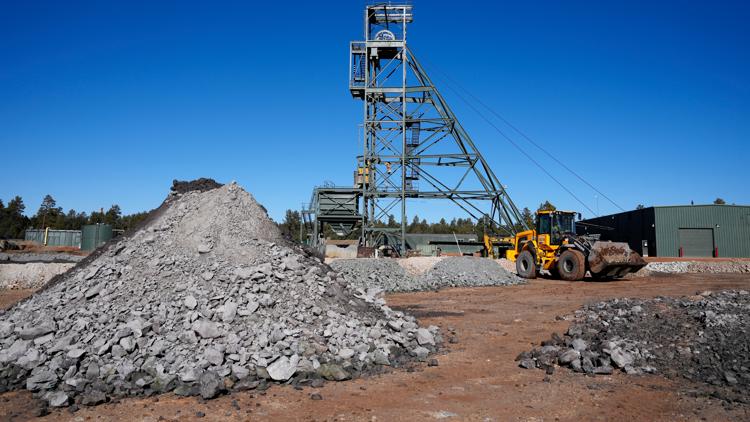
New Study Prompts Reevaluation of Environmental Impacts of Uranium Mine Near Grand Canyon
Recent findings have raised concerns about the environmental consequences of the Pinyon Plain Mine, a uranium mine located south of the Grand Canyon. The Arizona Attorney General, Kris Mayes, has called for a fresh assessment of the mine’s impact, citing outdated and inaccurate information in the current environmental study dating back to 1986.
The Pinyon Plain Mine commenced uranium mining operations in December, with plans to continue for at least five years. However, Mayes is particularly worried about the mine’s potential impact on the groundwater supply in the Grand Canyon region, especially for the Havasupai Tribe, which relies on the sole aquifer in the area.
Concerns have been raised regarding the transport of mining contaminants between aquifers, as a recent study highlighted the likelihood of such contamination. According to University of New Mexico’s Laura Crossey, the groundwater system in the region is complex and cannot be accurately assessed based on outdated studies from 1986.
Energy Fuels Resources, the company operating the mine, defended its operations, stating that the environmental impact statement from 1986 had been reviewed and upheld by relevant authorities. However, Mayes remains skeptical, especially after reports of uranium transport across tribal lands without proper notification and emergency preparedness plans.
Environmental activists, tribal leaders, and concerned citizens have rallied against the mine, citing past experiences of uranium mining’s adverse effects on the Navajo Nation and the need to protect water sources and communities. Efforts to halt the transport of uranium-containing rocks across tribal lands have gained momentum, with calls for stricter regulations and oversight.
The battle against the Pinyon Plain Mine highlights the larger issue of environmental and social justice concerns surrounding uranium mining, with advocates pushing for greater transparency, accountability, and protection of vulnerable communities and ecosystems. As the debate continues, it remains crucial to prioritize the health and safety of all individuals and the preservation of natural resources for future generations.
Stay Informed
For the latest updates and stories on this issue, subscribe to the 12News YouTube channel and stay engaged with the ongoing developments.




